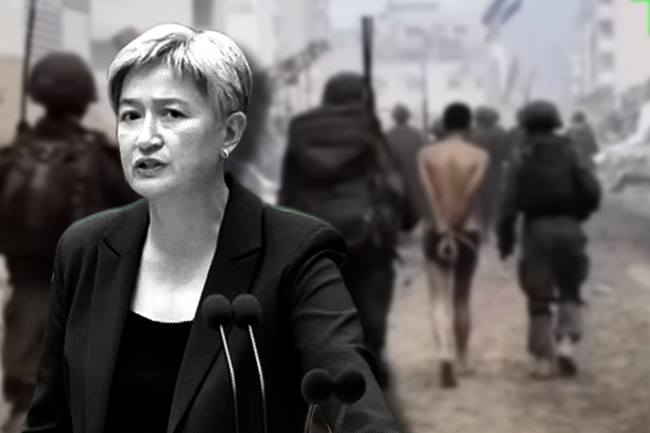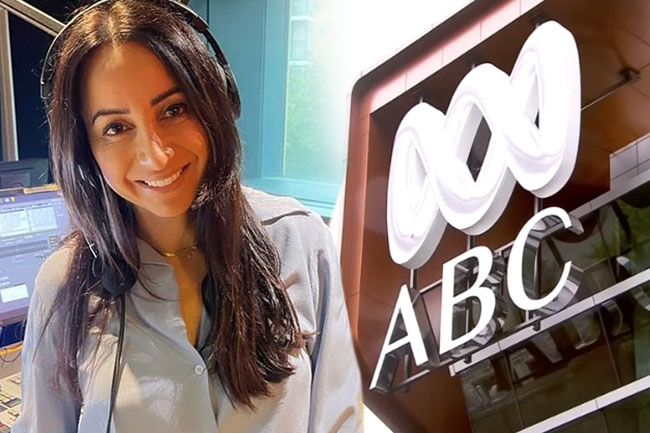The mainstream media's failure to report damaging information about Barnaby Joyce prior to the New England by-election amounts to a perversion of the democratic process, writes Dr Jennifer Wilson.
SINCE the Daily Telegraph confirmed the relationship between the then Deputy Prime Minister Barnaby Joyce and his pregnant staffer Vikki Campion in early February, mainstream journalists have vigorously defended themselves against public outrage at their silence on a story that was, according to Malcolm Farr, an open secret in Canberra for many months.
Most journalists have acknowledged awareness of the rumours and some made inquiries, but when their questions were met with denial they did not pursue the matter.
Last week, well after the horse had bolted, the Telegraph’s Sharri Markson wrote:
In the lead up to the New England by-election in December 2017, there were crisis talks between the offices of the Prime Minister and the Deputy Prime Minister about how to handle the scandal of Joyce’s relationship with Vikki Campion, should it break.
It [the relationship] had the potential to expose the Deputy Prime Minister to accusations of hypocrisy and render him vulnerable to a character assassination by opponents just as he was heading into a by-election, on which the fate of the Turnbull Government would rest.
Joyce’s affair and allegations that taxpayers’ money was used to further Campion’s career had the potential to influence the outcome of the New England by-election in December 2017. Given that Joyce has now been forced to resign as Deputy Prime Minister since the scandal broke, it is reasonable to assume that had it been revealed prior to the by-election, it could have been a serious threat to a Turnbull Government struggling to stay in power with a one-seat majority.
It is difficult to accept that journalists were not aware of the potential of the affair to influence the outcome of the by-election.
Clearly, there was profound Coalition concern that the affair would reflect negatively on Joyce and, clearly, that was not a risk the Government was prepared to take. We are asked to believe that the Canberra Press Gallery was unaware that the Coalition held these concerns about Joyce’s affair. Or if the gallery journos did know, they did not consider it necessary to report those concerns, for reasons unknown.
Apparently, not one mainstream journalist saw fit to pursue a serious investigation — in spite of the ramifications of the affair. That they didn’t grasp the ramifications? That is difficult to accept.
Media silence enabled a successful attempt by the Government to withhold information from the New England electorate in order to achieve an outcome favourable to that government. Is there much more worthy of investigation, one has to ask, than the deliberate withholding of information from voters in order to influence the outcome of an election?
Journalists were aware of the rumours. The affair had been an open secret for months. A pregnancy was rumoured. Campion had been moved from Joyce’s office to Senator Matt Canavan’s, back to Joyce's and, finally, to Member for Murray Damian Drum's office. There was not sufficient journalistic interest in how this situation might affect the New England by-election to prompt, at the very least, questions being asked in the media? How did these circumstances not pass the public interest test?
This media silence and the decision not to pursue the rumours appear to the public as complicity.
This perceived complicity is a threat to the democratic process. It is the reason for the anger, contempt and increasing disregard for the Fourth Estate, who are supposed to speak truth to power and protect democracy.
What might the outcome of the New England by-election have been had journalists reported the situation? And would that outcome also have affected the later Bennelong by-election?
Given the public outrage at allegations that Joyce used taxpayer funds to support his lover and has accepted rent-free accommodation from a businessman who is thought to indirectly profit from some of Joyce’s ministerial decisions, there is every reason to consider that this knowledge would have negatively affected both by-elections. Sunday’s Sky News ReachTel poll shows that the Joyce affair has negatively impacted the Government and this is acknowledged by Foreign Minister Julie Bishop.
Yet journalists did not think the affair worthy of concern, beyond asking the most superficial of questions and accepting a denial.
When the first public hints emerged of trouble in the Joyce marriage, the Guardian’s Katharine Murphy tweeted:
The story is not about “private lives”. It never was. Murphy’s judgment and the framing of the affair as "private" are disingenuous at best. The story is about the democratic process and voters’ rights to go to the ballot box fully informed. The story is about a Government deliberately concealing not just an affair, but also the use of taxpayers’ money in the pursuit of that affair in order to win an election. It is difficult to see how any journalist can reduce this story to one factor and then defend that reduction.
One of the defences employed by Murphy and others was to focus solely on the sexual aspect, even going so far as to accuse the public of having a prurient interest in politicians’ sexual lives. Yet many of us knew from the start – and stated repeatedly on social media – that this was not about Joyce’s sexual life. It was about possible rorting. It was about deception. It was about concealment. It was about breaching ministerial guidelines. It was about who else was involved in the cover-ups. And, it was about perverting the democratic process.
In 'Sins of the father: Why not publish Barnaby Joyce's baby news?', Fairfax’s Jacqueline Maley claims that lack of newsroom resources prevented any further investigation of the Joyce affair. Difficult choices have to be made as to where the money is spent, she claims. Did Maley and her colleagues fail to grasp the ramifications of the affair? Because it is difficult to imagine a more justified investigative spend than on a story such as this one.
The Guardian’s Gay Alcorn admits journalistic mistakes were made and suggests that:
'Surely the voters of New England deserved some reporting of all this, or at least some digging. That’s easier said than done, but the Government must have been happy that its efforts to keep it quiet were so successful.'
Alcorn does not then take this to the next level – in my view the most serious level – by acknowledging that the reluctance of media to do this “difficult” digging enabled the Government to keep it quiet and ensured the scandal would not erupt prior to the by-election and provoke negative reactions from voters.
And then we have the public interest defence in which it is argued that while the affair might indeed have been of interest to the public, it did not qualify as being of “public interest”. Is there anything more in the public interest than efforts by a Government to influence the outcome of a by-election it desperately needs to win by withholding damaging information about their candidate?
This unfathomably daft piece from The Conversation editor, Misha Ketchell, titled 'Journalists were wrong to reveal Barnaby Joyce’s affair', entirely misses the point, focusing instead on a politician’s allegedly inalienable right to privacy, apparently at all costs, even at the expense of an entire electorate and the democratic process.
The impression created is that journalists missed the gravity of the situation and the potential of the affair to disrupt the democratic process.
Alternatively, the media accorded Joyce a level of privacy seldom given to any other individual in order to enable the Government’s agenda.
The impression created is that journos thought they’d done enough by merely asking about the open secret, accepting a denial and declining to undertake any further investigation on the grounds of privacy and their "public interest" test.
A sexual affair is not in itself of public interest. However, this was far more than merely a sexual affair. It is difficult to accept that the Press Gallery was and is not aware of this when everyone else – including the Government – recognises the ramifications of the relationship.
It cannot be denied that mainstream media’s abject failure to cover the affair prior to the New England by-election enabled a very worried Coalition Government to keep the story under wraps, ensuring Joyce’s re-election. Whether this was by accident or design, we can’t know with any certainty. Either way, it is a reprehensible situation. We have every right to be mistrustful and contemptuous of a media that either, at worst, colluded, or, at best, was incapable of seeing how concealing this affair at that time threatened our democratic process.
For those who defensively scoff that Joyce would have won anyway, that was obviously not the belief of the Turnbull Government. Further, it is beside the point. The point is that information was deliberately withheld from voters by the Prime Minister’s Office and the office of the Deputy Prime Minister, with the goal of influencing the outcome of the by-election. And if media were complicit in this withholding, then we have a conspiracy to pervert the democratic process in order for the Turnbull Government to retain its one-seat majority.
You can follow Dr Jennifer Wilson on her blog No Place for Sheep or on Twitter @NoPlaceForSheep.

This work is licensed under a Creative Commons Attribution-NonCommercial-NoDerivs 3.0 Australia License
Monthly Donation
Single Donation
Speak truth to power. Subscribe to IA.











